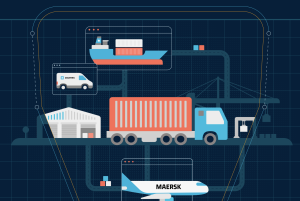South Africa’s 2010 freight logistics expenditure of R339-billion is 12.7% of gross domestic product (GDP), a percentage decrease when compared with 2009’s 13.5% of GDP, revealed the eighth State of Logistics Survey, ‘Gearing up for Change’, published in May 2012 by the Council for Scientific and Industrial Research (CSIR), Stellenbosch University and Imperial Logistics.
The continuing downward trend in South Africa’s logistics costs as a percentage of GDP was in contrast to recent movements in the United States, where it grew from 7.7% to 8.3% in 2010, said the report.
Transport costs were the single-biggest factor influencing South Africa’s logistics costs, accounting for 53.2%, compared with the global 40%. “South Africa is a ‘transport-hungry’ economy; if transport is not given priority as a strategic planning imperative, it could become the Achilles heel of economic growth.”
Transport costs in South Africa increased significantly by 16.2% in 2010, compared with 2009, mainly attributed to rising fuel costs. Consequently, uncertainty relating to the fuel price was identified as an important risk for South Africa’s transport costs.
A significant modal shift from road to rail is required to mitigate the risk associated with transport cost, but reducing transport demand should also be considered, noted Zane Simpson of the Stellenbosch University.
Freight transported on roads grew by 5.5% to 1.44-billion tons in 2010, up from 1.37-billion tons in 2009. Rail transported 182-million tons in 2010, 3.7% more than the 173-million tons recorded the previous year.
The performance of South Africa’s logistics sector has been a determining factor in positioning the country as a sought-after business partner.
“The South African government’s increased focus on investment in infrastructure development has seen more than R260-billion being set aside for transport and logistics projects,” said CSIR Built Environment executive director Cornelius Ruiters, adding that effective maintenance, expansion and management of South Africa’s infrastructure would enable the country to compete at a higher level.
However, for logistics to become a competitive weapon for South Africa, change would be required. “We need to change from the mindset that logistics is merely the result of the market activity, to that of giving logistics its due as a value creator,” said IMPERIAL Logistics chief integration officer Cobus Rossouw.

























